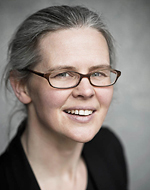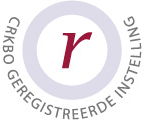Interview Ellen Rutten

Assertive leadership strengthens professors
Professor Dr. Ellen Rutten (University of Amsterdam) is one of the key speakers on the 6 November conference Let Scientists Shine! She was and is in the midst of the revolution for democracy at her university. What does she think scientists need? A personal tale of scientific success, effectiveness and well-being.
When I call Ellen Rutten – a professor of Literature and chair of the Slavonic Department at the University of Amsterdam – she is enthusiastic. “I have such great news! I just got an €800.000 Vidi grant by NWO. This opens another door to growth for my department”. How has she managed her first three years as a full professor and what can we learn from it?
“I guess my main message during the conference is that this job can be immensely gratifying. Organisational circumstances do not have to function as barriers, and valorisation activities can be inspirational and fun.” But, as our interview makes clear, this professional gratification does not come without a price tag: it takes assertive personal and departmental leadership.
“When I started my job as a full professor three years ago, I found myself in a position where I had to make some tough decisions. Hiring new staff and building a team demanded of me to sometimes advise against the tenure of individual staff members. Since my employees did not always agree, I felt alone in some of these decisions. On the other hand, last year my team and I have joined forces in actively combating budget cuts for our program – and that joint effort has substantially boosted our group solidarity. Having gone through both these processes, I now have a team that respect and support me. They know that I can persist in taking difficult decisions, but that I will fence for them if needed, against forces outside the department.
In the past years, I met challenges not only on management level, but also in the classroom. I had little experience in teaching when I started, and the development and teaching of classes took a great deal more time than I had anticipated. The time-pressure on professors is enormous: a colleague of mine calculated that all her tasks combined added up to 1,9 fte, i.e. almost two full-time jobs. I took the help of an internal coach, who taught me to make effective time management decisions. Now I focus on research every day until noon, and do urgent administrative tasks, class preparations, and most teaching in the afternoons. I take it upon myself to guard my job satisfaction and well-being as well as that of my employees. The current scientific culture takes pride in working late and during weekends and holidays. I like to support my staff by saying “maybe you should not take work home or to holidays”. We are all better scientists when we sleep well, focus and concentrate, and feel motivated.”
Rutten emphasizes that it takes constructive assertive behaviour to make decisions in leadership and to survive in the organisation. “You will need to say no to some organisational tasks like governance or board membership when you go for other priorities such as research in some periods. I aim at choosing what is best for the department and for me, and I am not afraid to defend those decisions.
One of the things I truly enjoy in this job, is the planning of valorisation activities. We recently had a debate among our staff about what valorisation is or can be, and discovered we already actively engage in it. We are now cooperating with the Dutch Design Academy and we have recently teamed up with the Stedelijk Museum and the Drents Museum for a translation and an opera performance by our own theatre collective. Maybe it is because I was not raised in an academic family, that I feel the urge to spread my work among non-experts. That I followed media training programs for scholars certainly helped. I am now trying to create a mutual learning process within such activities: we shouldn’t just be sending one-way messages “from expert to lay audience,” but we also need to listen to input from non-scholarly audiences. Experiences and ideas from non-experts inspire me personally and scientifically.
I do think universities could learn from communication experts. There seems to be a disdain for consultants and communication experts. But – especially when I think of the recent turmoil at the University of Amsterdam – universities and their employers would benefit substantially from wiser communicative policies.
All in all, I love the freedom of my job,” so Rutten concludes. Assertive leadership, so our interview implies, helps to shape that freedom into what is best for her department. “I am looking forward to sharing this during the conference Let Scientists Shine!”

